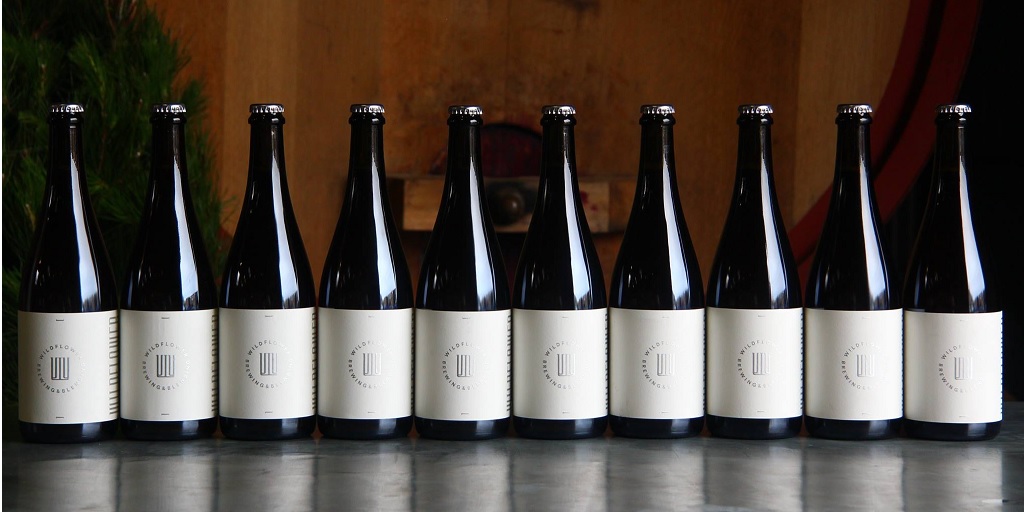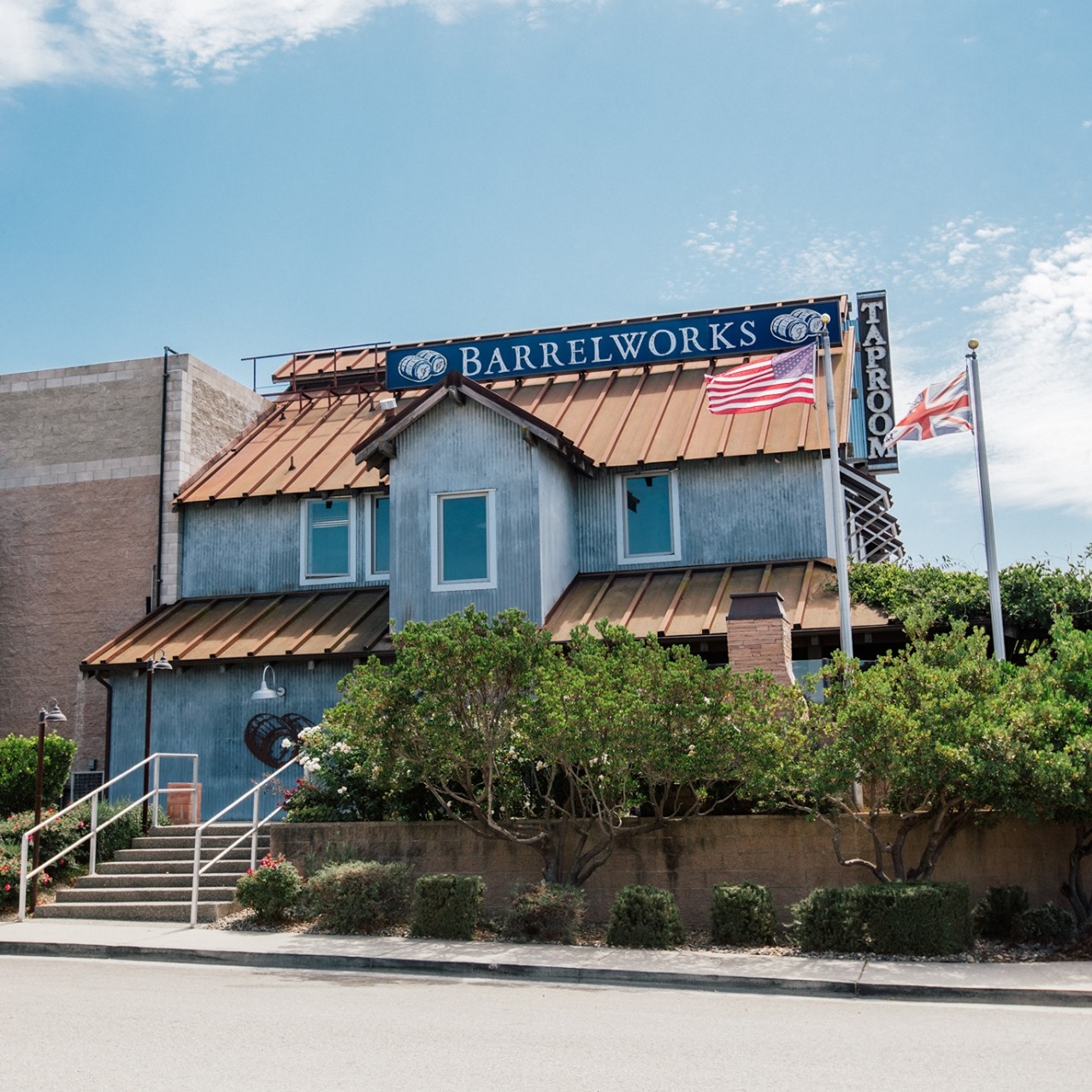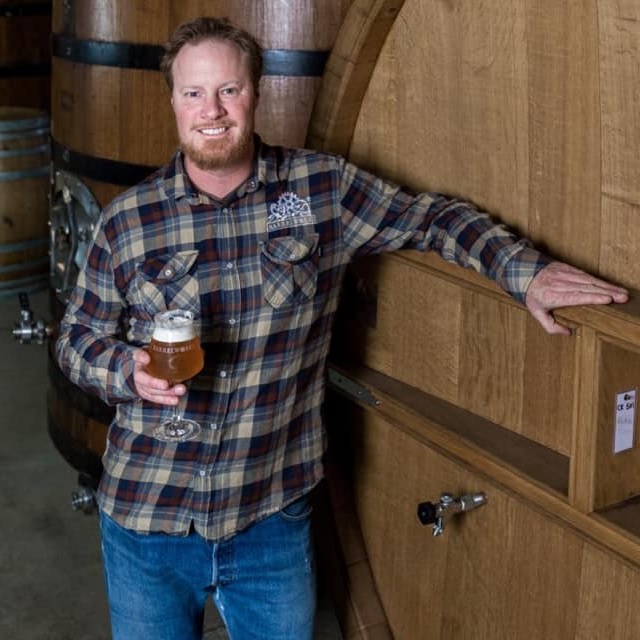
Wildflower brews beer-wine hybrid for US terroir project

Wildflower Brewing and Blending was invited to the US last month for the Firestone Walker Terroir Project, for which the NSW brewers were tasked with brewing a beer-wine hybrid.
The project brought breweries from across the globe together to discuss and compare techniques and challenges with their individual beers.
Wildflower joined Firestone Walker’s wild ales division Barrelworks, as well as Sierra Nevada, Beavertown, New Zealand’s Garage Project, Italy’s Birrificio del Ducato, the UK’s Wild Beer Co and a number of other breweries to take a closer look at beer and winemaking techniques across the world.
Conditions of the project stipulated that all participating brewers had to use the same grain bill for their brews, have the same maturation period in barrels and the same co-fermented percentage of wort and wine grapes. All grapes had to be grown within 100 miles of the individual brewery.
Wildflower brewer and co-founder Topher Boehm said that the Marrickville brewery’s hybrid brew was made with hand-harvested Semillon grapes from Tyrrell’s Estate – a vineyard and winery in the Hunter Valley with a 160-year-old history – adding to its distinctively Australian heritage.
Grapes were harvested in late January and brought back to the brewery to allow fermentation to begin naturally, using the indigenous yeasts found on the grape skins.
“Once this fermentation was underway, we racked freshly-brewed sterile wort onto the fruit which began fermentation by the wine-grape yeasts,” he explained.
“The two were left in contact to ferment and macerate for six months before being packaged in keg and bottle and allowed to naturally develop carbonation via tertiary refermentation in bottle.”
Boehm said when they were invited to attend the festival initially, it was an immediate yes.
“It was a huge honour to be asked,” he said.
“I’m passionate about where ingredients come from and this idea of making beer with wine grapes, while not super new or even that old, is an interesting space and I find the flavour to be really enjoyable.
“The festival itself is not about exposure or even trying to compare the beers, it’s for the producers to come together and have a conversation around these types of beers and ask ‘How am I doing this? Why are you doing that and can I improve this or that?’
“The festival is short but these conversations continue,” he said.
The aim of the festival, rather than competing, was to further discussions about terroir (even if the term is not Boehm’s favourite), what the brewing industry can learn from winemaking and how the two techniques can be amalgamated.
“The majority of the differences [in the beers] came from not simply the fruit, but also the techniques of those breweries.
“Some of those breweries were using larger red varietals, some breweries tend to have more acid in their beer – [it highlighted] the regional differences of the brewery more so than the fruit.
“That’s a very difficult thing to separate and that’s the essence of talking about terroir – it’s not just the soil, it’s not just the beer, it’s the way you brew.”
Looking at the brewing techniques and beers of the participating breweries from all over the world was an eye-opener, Boehm said.
“What I’ve got out of it is that we can, in Australia, make world class beer.
“It was benchmarking really – it’s a really nice thing as a producer to go and talk to people about what you’ve done and how you have developed your processes and realise we’re all on track, we’re thinking the same things and we’re not behind [the rest of the world].”
“The weird thing about beer is that it’s global. It’s a community and to be able to present what we do and showcase Australian beer and Wildflower itself on a small but still a world stage, it’s important to do for the industry.”
The Terroir Project was spearheaded by Jim Crooks, master blender at Barrelworks, the specialist oak-aged and sour beer division of Firestone Walker, California’s fourth-biggest brewery.
“The Terroir Project was built around the idea that brewers wanted to learn more about how winemakers feel, see, taste and touch,” he told Brews News.
He said Firestone’s Barrelworks business was in a position to be able to champion smaller local producers and this fed into the Terroir Project itself.
“There’s this sense of being very small and boutique, and a lot of us are trying to champion smaller producers, not just because of the uniqueness of the product, but also the story around it.
“I love producing a beer with a story around it – you can pull in the producer as a champion of their own craft.”
One of the things Crooks has learned from the project is that winemaking is a lot harder than people give it credit for.
“It’s so climate dependent – one or two days of bad weather can ruin your crop.
“As far as bouquet and aromatics, wine has really a diverse, amazing spectrum of flavours and colours, it’s really mind-opening.”
He said that what brewers can learn from winemakers is a greater consideration for the provenance of their ingredients and their supply chain.
From the perspective of a winemaker, he said, there was more control over the raw ingredients and an understanding of how terroir or climate effects them on an early and fundamental level.
“Whereas in beer making we’re harvesting all the hops we’d need for the entire year, hoping they are harvested cleanly and ethically, packaged in a high quality, low oxygen packaging, that the harvests are free of mould and dust or dirt, that your grain is malted properly and the thousands or millions of pounds of malt is consistent,” he explained.
Crooks said that brewers were visiting farms, sampling their ingredients and focusing on provenance to a greater degree in recent years, but there was still some work to be done.
“There is a chance to learn [from the winemaking industry] though. We are starting to do that with beer making with regards to the selection of raw ingredients for Barrelworks’ production site.”
In the meantime, the Terroir Project could be hitting the road in future years – next time potentially in the Southern Hemisphere.
“We’re trying to figure out how that would work to take it international and share it with other people and breweries, to draw attention to the uniqueness of these beers,” Crooks said.
The beers being produced are so unique in fact, that Crooks wants to create a different category of beverage for the beer-wine hybrid, although they’ve yet to come up with a name, so watch this space.
Bottles of Wildflower’s Terroir Project brew ‘Playing With Fire’ will be available in 2020.





